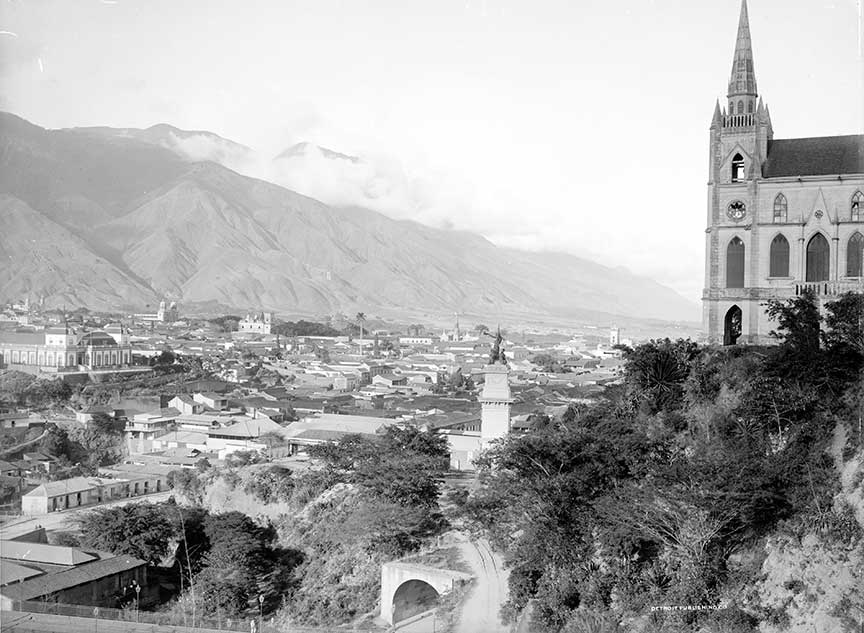1902 - Britain and Germany Threaten Venezuela

Caracus 1902
On December 19th,1902 British and German warships captured the harbor of La Guaira in the port of Caracas, capital of Venezuela. The British and Germans demanded that the Venezuelans pay compensation to British and German nationals and corporations for damages caused by earlier unrest in Venezuela. This dispute was turned over to The Hague tribunal which ruled in favor of Britain and Germany..
-
Venezuela's Political and Economic Turmoil: During the late 19th and early 20th centuries, Venezuela experienced significant political and economic instability. The country was grappling with internal unrest, which often led to damage to foreign properties and interests.
-
Foreign Debts and Claims: European powers, particularly Britain and Germany, had significant economic interests in Venezuela. Venezuelan governments had accumulated debts with European countries, and there were also claims for damages caused to European nationals and corporations due to the internal unrest in Venezuela.
The Incident
-
Capture of La Guaira Harbor: On December 19th, British and German naval forces executed a decisive action by capturing the harbor of La Guaira. This was a strategic move, as La Guaira served as a vital port for Caracas, the capital of Venezuela.
-
Demands for Compensation: The primary motive behind this capture was to compel the Venezuelan government to address the issue of compensation. Britain and Germany demanded that Venezuela make reparations for the losses incurred by their nationals and corporations.
International Response
-
The Hague Tribunal: The dispute eventually escalated to an international level, being referred to The Hague Tribunal. This was a significant development as it involved international arbitration in an era where disputes were often resolved through direct military intervention or colonial domination.
-
Ruling in Favor of Britain and Germany: The Hague Tribunal's decision favored Britain and Germany, compelling Venezuela to make the demanded reparations. This ruling was crucial as it set a precedent for international arbitration in resolving such disputes.
Broader Implications
-
Imperialism and Gunboat Diplomacy: The incident is a classic example of gunboat diplomacy, where major powers used military might to protect and advance their economic interests abroad. It underscored the imperialistic tendencies of the era.
-
Emergence of International Law and Arbitration: The referral of the dispute to The Hague Tribunal and its subsequent ruling highlighted the growing importance of international law and arbitration in resolving international disputes, a concept that was still in its infancy at the time.
-
Impact on Venezuelan Sovereignty: For Venezuela, the incident was a significant blow to its sovereignty. It highlighted the vulnerabilities of smaller nations to the economic and military pressures exerted by more powerful countries.
-
Precursor to the Monroe Doctrine's Roosevelt Corollary: The event also played a role in shaping U.S. foreign policy, particularly the Roosevelt Corollary to the Monroe Doctrine, which asserted the U.S. right to intervene in Latin America to stabilize the economic affairs of small states in the Caribbean and Central America if they were unable to pay their international debts.
In conclusion, the December 19th incident at La Guaira harbor was more than a simple demand for compensation; it was a complex event that reflected the geopolitical dynamics of the time, involving issues of imperialism, international law, and the sovereignty of nations.
 >
>